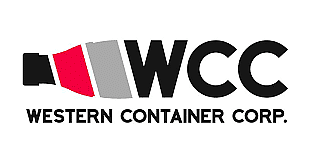Alternate Methods of Compliance (Austin/Dallas)
Inspections on residential and commercial buildings are common. Sometimes, issues can arise that require some extra steps, especially if you miss a required inspection. We can help you in the Austin and Dallas area with alternate methods of compliance.
What do you do when you have missed a required building inspection?
So it turns out that somehow a required building inspection was missed. The city inspectors are informing you have a couple of options. First, you can tear down all of your drywall and let them re-inspect the home. This is a costly method that requires tons of expensive rework. Your second option, depending on the city, is going through an alternate method of compliance.
Alternate Method of Compliance
The Alternate Method of Compliance (sometimes referred to as AMOC) can also be called many different things in various jurisdictions. Some cities may require a professional engineer to inspect the home’s wiring and construction methods to ensure that the building was correctly constructed.
Missed Ufer Inspections
The first inspection type you may need is called a Ufer inspection. What is a Ufer Ground? It is a slang term that refers to utilizing the steel in your concrete slab as a grounding method. Ufer is the name of the engineer that created this as a solution to specific grounding problems.
When you have missed the inspection of your concrete slab, a few things need to happen. First, the continuity of the slab must be checked with your grounding bus. This can be accomplished with signal tracing and a fall-of-potential test. Second, the NEC (National Electrical Code) requires a copper grounding rod to be installed when the rebar in concrete does not meet certain requirements, such as length and diameter to the rebar. Since your Ufer is now covered, it is difficult to measure and prove that the slab meets those requirements. Installation of a standard copper grounding electrode or copper grounding plate will remove those physical requirements from your slab, and you are left with only needing to show electrical continuity.
Missed Pool Inspections
A missed pool inspection generally refers to the inability of the inspector to see the rebar and grounding methods used for the pool shell. Again, signal tracing and fall of potential tests can be performed to show continuity. Your contractor’s records of purchased items (such as grounding clamps) can be used to provide a traceable record for the engineer reviewing the design. In addition, a point-to-point grounding survey of any installed electrical equipment serving the pool is performed to show good continuity between all devices.
Don’t forget, making sure you have an appropriate grounding halo around the pool is critical to passing these inspections as well.
Missed Rough-In Inspections
A missed rough-in inspection can cause a lot of distress. This means that the walls were covered with drywall or other materials, and now the inspector cannot view the work your electrician did inside the walls. In order to check this, an engineer normally selects a random sample of the new work and disassembles the outlets, plugs, or lights. Then, a video-scope can be inserted into the walls to check for required cable securing. Remember that all cables not appropriately rated need to be covered by drywall. The engineer will also check in the attic for cable securing. Due to the nature of these inspections, it is vital that no issues are found in a random sampling of the home. If any issues are found, you may be stuck with having to uncover all of your electrical work for a direct inspection.
Need Help?
Dreiym Engineering performs these inspections for residential and commercial properties all over Texas. These inspections are not for buying or selling real estate, they are just in case you or your contractor miss a required inspection of your property. Get in touch with us to talk about your inspection.












































